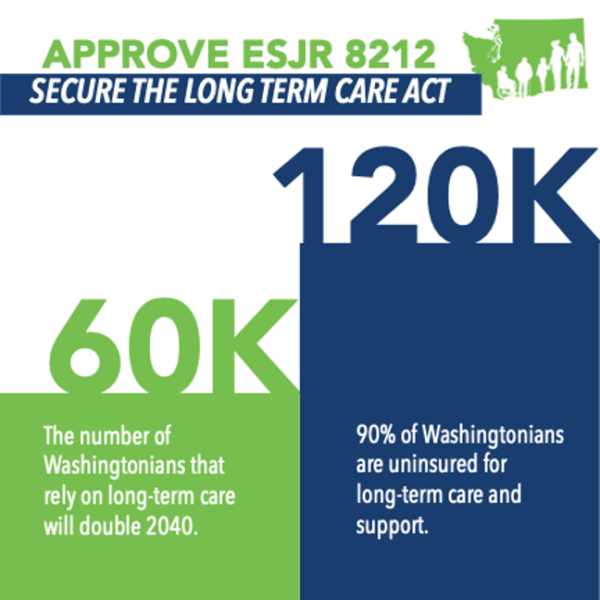Ballots went out this week, and this year your ballot includes an important measure that we at EOI support. We encourage you to vote to approve ESJR 8212 in order to secure The Long-term Care Act for all Washington seniors.
Seventy percent of adults over the age of 65 will need some level of long-term care, but ninety percent are uninsured for it. That’s why Washington state passed the landmark Long-Term Care Trust Act in 2019. The Act addresses Washington’s long-term care crisis by creating a fund to help folks pay for assisted living or in-home care when the time comes. However, to make the Long-Term Care Trust Act serve the people of Washington, there’s one more critical step: Approve 8212 this November.

SJR 8212 will help reduce the burdensome cost of long-term care for hundreds of thousands of struggling Washington families by giving the Washington State Investment Board (WSIB) more options to responsibly manage investments in the long-term care fund. The Washington State Investment Board already invests pensions for front-line workers like our teachers, police and firefighters in this manner. They also manage investments for worker’s compensation in the state.
This November, we need to give the WSIB the tools they need to responsibly invest in Washington’s future. Approving 8212 ensures that elderly Washingtonians can rely on and afford long-term services and support when they need them most.
More To Read
May 19, 2025
A year of reflections, a path forward
Read EOI Executive Director's 2025 Changemaker Dinner speech
March 24, 2025
Remembering former Washington State House Speaker Frank Chopp
Rep. Chopp was Washington state’s longest-serving Speaker of the House
February 11, 2025
The rising cost of health care is unsustainable and out of control
We have solutions that put people over profits
